
BEIJING, Feb. 6 (Xinhua) -- A senior Chinese scientist has told how global headline-grabbing achievements by his team would not have been possible without the spirit of frugality currently reigning in China.
Their pivotal breakthrough last year in the study of neutrinos, one of the elementary particles in the universe, was made possible amid a thrift campaign that started long before a Xi Jinping speech at the end of 2012 in which the Chinese leader endorsed "being diligent and thrifty."
Following the Daya Bay Reactor Neutrino Experiment conducted in south China's Guangdong Province, Chinese and foreign physicists announced in March 2012 that they had confirmed and measured a third type of neutrino oscillation.
The findings are expected to help define the future of particle physics and may explain the predominance of matter over antimatter in the universe.
"With the premise of ensuring the needs of the experiment, we've avoided all unnecessary construction projects and decorations," Wang Yifang, a key participant in the experiment, told Xinhua.
An initial 157 million yuan (25 million U.S. dollars) was collected for the start-up of the experiment, but Wang estimates that a foreign project with the same level of requirements would get three times that figure.
At that point, a campaign of thriftiness was launched among the team to last for the 10-year course of the experiment, preceding the national one kicked off following Xi's speech.
A list of essential costs started with those surrounding design.
"Our design blueprint was repeatedly optimized based on scientific notions and economic concerns, with a detailed plan regarding the transportation of devices and project staff," said Wang, also head of the Institute of High Energy Physics (IHEP) of the Chinese Academy of Sciences.
According to Wang, a budget was made for every stage of the work and then discussed among the project command group for approval.
In order to reduce construction costs, an all-important underground tunnel was built with a height of 6 meters, just enough to let 5.9-m-high detector containers get across.
"We could have saved a lot of effort by building it higher, but then it would have cost more," said Zhuang Honglin, chief engineer for the experiment.
Compared with project design, logistics spending provided much more space to cut down costs.
Ten km from the experiment site, scientists who needed to do long-term work on the site jointly rented a three-story house built by local villagers.
The small building was divided into more than 10 rooms, all of them furnished by no more than a bed and a table. The ping pong table in the parlor doubled as boardroom facilities whenever a meeting was called.
According to the team, the rent was only 15 yuan per day for one person -- much lower than prices in the "expert village," which is conveniently located inside the Daya Bay Nuclear Power Station.
Looking for plane ticket discounts and taking bus shuttles instead of taxis between the airport and the nuclear station were common practices. And project staff shouldered the roles of driver and cook on a rotating basis -- chief engineers and duty managers no exception.
Many would have expected a different situation given abundant research funds, but Wang begs to differ.
"We saved not because we didn't have money. In other words, having money doesn't mean we could waste," the IHEP chief said, stressing that, with 100 yuan, one must do deeds worth exactly that amount.
In Wang's view, considering how to use funds effectively is a permanent concern for scientific research workers.
"Thrift is not a goal. It's about spending money on the most necessary parts," he added.
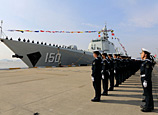
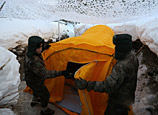


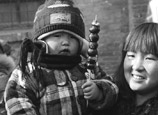


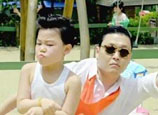
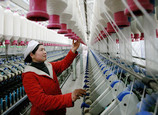







 Most feared Spring Festival questions
Most feared Spring Festival questions


![]()
